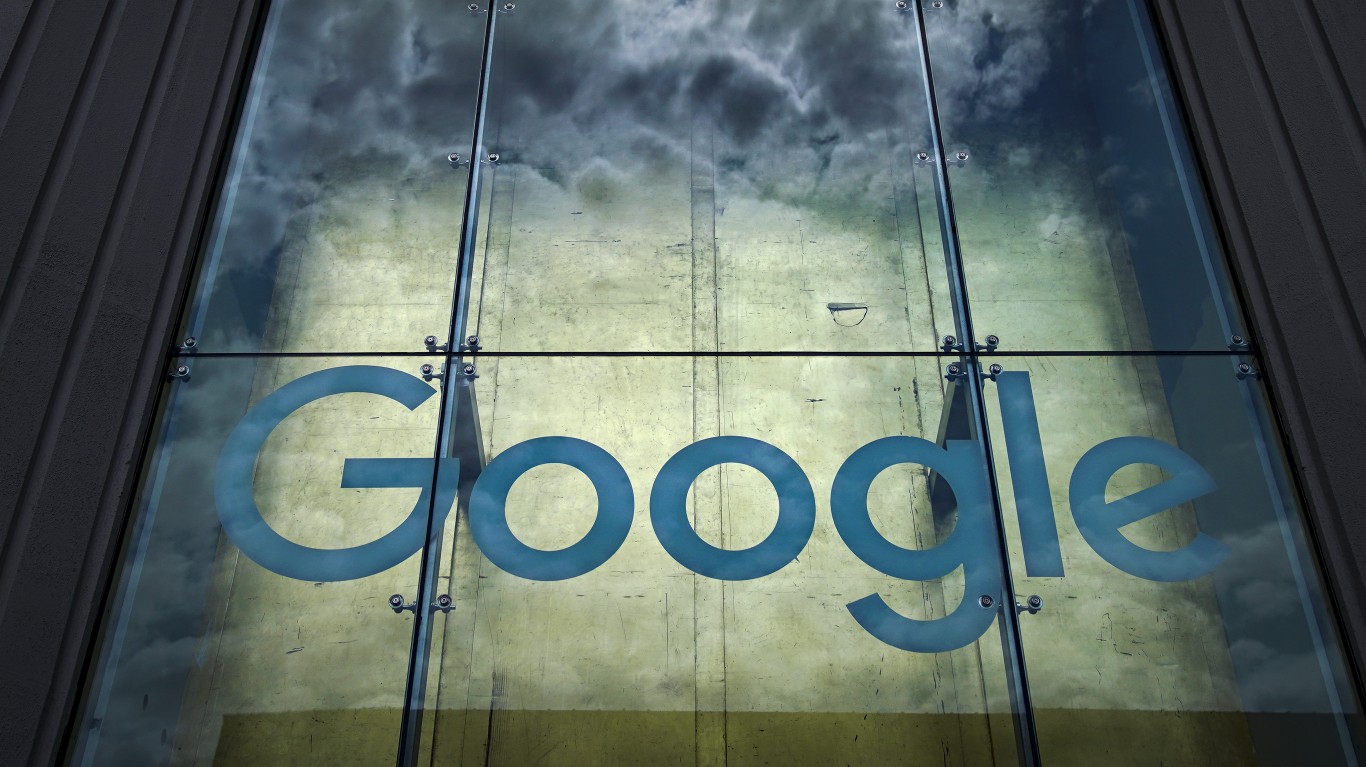

As expected, the U.S. Department of Justice Tuesday morning filed a lawsuit against Google and its parent company, Alphabet Inc. (NASDAQ: GOOGL), seeking to restrain Google from “unlawfully maintaining monopolies in the markets for general search services, search advertising, and general search text advertising in the United States through anticompetitive and exclusionary practices, and to remedy the effects of this conduct.” The department was joined in the lawsuit by the attorneys general from 11 states.
[in-text-ad]
The lawsuit claims that Google has for many years ” used anticompetitive tactics to maintain and extend its monopolies in the markets for general search services, search advertising, and general search text advertising—the cornerstones of its empire.” Google’s biggest sin, according to the lawsuit, appears to be its agreements with smartphone makers, wireless carriers and browser developers that block rival search engines.
In a post on Google’s official blog, Senior Vice President of Global Affairs and Chief Legal Officer Kent Walker responded to the lawsuit by noting, first, that “[p]eople use Google because they choose to, not because they’re forced to, or because they can’t find alternatives.”
Comparing Google’s business practices to the way cereal brands pay for placement on store shelves, Walker notes that the “shelf space” is dominated by Apple, AT&T, Verizon, Samsung and LG in the same way that Microsoft dominates shelf space in the desktop computer market.
Walker goes on to point out that Apple CEO Tim Cook said in 2018 that Google’s search engine is the default for iOS’s Safari browser because it “is the best,” even though Cook has taken some shots at Google’s lack of privacy. Walker also noted that it is easy to change the default search engine on the iOS Safari browser.
Of course, Google pays Apple more than $7 billion annually for the privilege of being the default search engine on iOS, so Apple is unlikely to want to back the Justice Department lawsuit. And Google’s net ad revenue from iOS searches hauls in about $25 billion a year in revenue, so the company wants to defend that revenue stream.
Another of Walker’s arguments is an old one: there are plenty of competing search engines, browsers and other apps available for iOS or Google’s own Android operating system and users can change those apps and browsers and search engines in “a few seconds.” How many users know that or, even if they do, want to fiddle around for a few seconds that could turn into many minutes for an inexperienced user?
Google and Alphabet have a lot at stake here, but the government’s case appears to be narrowly focused on what Google reports quarterly as traffic acquisition costs and paying for placement. Perhaps the most potentially damaging issue in the lawsuit is Google’s practice of blocking Android phone makers from replacing the operating system’s default hooks to Google Search. That could lead to a real headache for consumers who would then presumably be at the mercy of the phone makers to put together (for a price) the apps that come with their phones.
Are the courts going to decide who owns the user experience on computing devices? That’s where the lawsuit appears to be headed, and that’s probably not the outcome most consumers want. Should Google or Apple, or Microsoft or Verizon or some other company, get to decide the winners? Most consumers probably just want their devices to work with as little fuss as possible. Does meeting most consumers’ needs outweigh a competitive marketplace? We may be about to find out.
Take This Retirement Quiz To Get Matched With An Advisor Now (Sponsored)
Are you ready for retirement? Planning for retirement can be overwhelming, that’s why it could be a good idea to speak to a fiduciary financial advisor about your goals today.
Start by taking this retirement quiz right here from SmartAsset that will match you with up to 3 financial advisors that serve your area and beyond in 5 minutes. Smart Asset is now matching over 50,000 people a month.
Click here now to get started.
Thank you for reading! Have some feedback for us?
Contact the 24/7 Wall St. editorial team.



